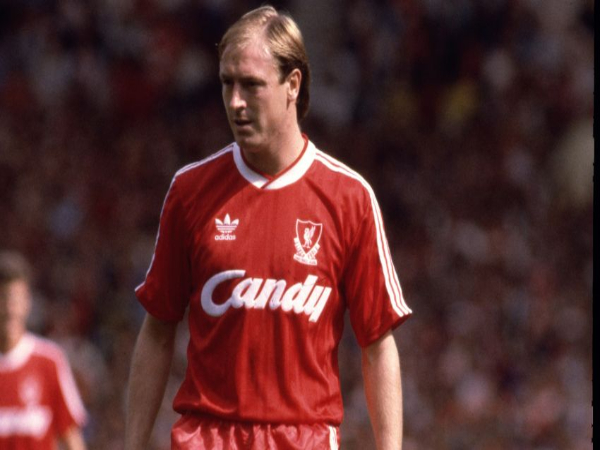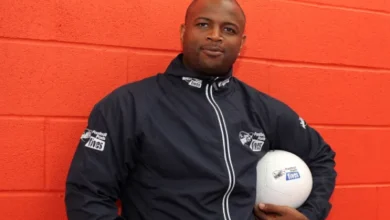Steve McMahon: The Legacy of a Football Legend and Pundit
Exploring the Career, Family, and Achievements of Steve McMahon – A Football Icon

Steve McMahon is a former English footballer, manager, and current television pundit best known for his successful career as a midfielder in top-flight football, especially during his time with Liverpool in the 1980s. Having played for prominent clubs such as Everton, Aston Villa, and Manchester City, McMahon’s legacy in English football is celebrated by fans and experts alike. His leadership on the field and contributions to Liverpool’s dominance in English football during the late 1980s were integral to the team’s successes. Beyond his playing career, Steve McMahon has also ventured into management and punditry, providing insightful commentary on the sport. His life, achievements, and contributions continue to inspire many in the world of football.
Introduction
Steve McMahon’s career has spanned decades, encompassing triumphs as a player, manager, and pundit. A household name in the world of English football, McMahon’s influence stretches far beyond his playing days. From his early career at Everton to his pivotal role at Liverpool, McMahon solidified his place in football history. This article delves into his life, career, and lasting impact on the sport, while exploring personal details such as his age, family, and net worth.
Steve McMahon: Football Career and Achievements
Early Life and Career Beginnings
Steve McMahon was born on August 20, 1961, in Halewood, England. He began his football career at the age of 16, joining the youth ranks of his local club, Everton. By 1979, McMahon made his debut for the senior team, showcasing his talent as a midfielder. His style of play was marked by resilience, creativity, and a strong work ethic, making him a valuable asset in Everton’s midfield.
Move to Liverpool and Rise to Prominence
In 1985, McMahon made a significant move to Liverpool, a decision that would define the rest of his career. Under the management of Kenny Dalglish, McMahon became a key player in a dominant Liverpool side that won numerous domestic and European titles. His combative style of play and leadership qualities made him an essential part of the team, and he contributed to Liverpool’s success in the 1980s.
During his time at Liverpool, McMahon helped secure several key victories, including multiple First Division titles and FA Cups. The team’s performances were part of a golden era in English football, and McMahon’s name became synonymous with that success.
Later Career at Manchester City and Swindon Town
After leaving Liverpool in 1990, McMahon had brief spells at Manchester City and Swindon Town. At Manchester City, McMahon played an instrumental role in their midfield, helping the team climb the ranks of English football. In the final chapter of his playing career, McMahon moved to Swindon Town, where he continued to showcase his leadership and experience until his retirement in 1998.
International Career
Though McMahon was a stalwart in club football, his international career with England was relatively brief. He earned 17 caps between 1988 and 1990, playing a role in England’s UEFA Euro 1988 campaign and the 1990 FIFA World Cup. McMahon’s international career was limited, but his influence on the domestic stage solidified his place as one of the finest English midfielders of his generation.
Steve McMahon’s Transition to Management and Punditry
Managing Career
After retiring as a player in 1998, McMahon made the transition into management. He took charge of Swindon Town, the club where he had spent his final playing days. His managerial career also saw stints at Blackpool and Perth Glory. Though McMahon didn’t replicate the same level of success as a manager as he did as a player, his insight into the game and tactical acumen were evident. His managerial tenure showcased his deep understanding of football and his leadership qualities, though he never reached the heights of his playing career.
Punditry and Media Work
Today, Steve McMahon is a respected television pundit. His years of playing experience, combined with his keen insight into football, have made him a prominent voice in sports media. McMahon regularly provides commentary and analysis on football matches, offering expert opinions on everything from tactical setups to player performances. His punditry career has allowed him to remain closely connected to the game and continue contributing to football culture, sharing his knowledge with fans and viewers alike.
Steve McMahon: Age, Family, and Personal Life
Steve McMahon’s Age
As of 2025, Steve McMahon is 63 years old. Born on August 20, 1961, McMahon has lived a life full of achievements both on and off the football field. His longevity in the game, from playing professionally for nearly two decades to transitioning into a pundit, speaks to his enduring love for football and his ability to adapt to new roles within the sport.
Family Life
While Steve McMahon has generally kept his personal life private, it is known that he has a family, with a supportive partner and children. McMahon’s career, both as a player and pundit, has often kept him in the public eye, but he has maintained a relatively low profile when it comes to personal details. His family has supported him throughout his journey, though little is publicly known about them.
Steve McMahon’s Net Worth
Steve McMahon’s career, which spanned playing, managing, and punditry, has contributed to his wealth. As of recent estimates, McMahon’s net worth is approximately $10 million. This figure is reflective of his successful playing career, his time as a manager, and his ongoing work in sports media. McMahon’s net worth is bolstered by endorsement deals and his punditry work, which continues to bring him income.
Steve McMahon: Legacy in Football
Steve McMahon’s legacy is defined not only by his on-field achievements but also by his influence as a pundit and manager. His time at Liverpool, especially during the team’s dominance in the 1980s, remains a defining period in his career. As a player, McMahon was known for his physicality, leadership, and versatility in midfield, characteristics that made him a fan favorite at every club he played for.
Though McMahon’s managerial career didn’t achieve the same level of success as his playing career, his contributions to the sport are still highly regarded. His ability to provide sharp, insightful analysis as a pundit ensures that his influence in football endures.
Steve McMahon’s Impact on English Football
The impact Steve McMahon had on English football cannot be understated. From his days at Everton to his legendary spell at Liverpool, McMahon helped shape the landscape of top-tier football in the 1980s. His tough, no-nonsense style of play embodied the spirit of English football during that era. He was part of a Liverpool team that set the standard for excellence in the domestic game, winning multiple titles and capturing the imagination of football fans worldwide.
Moreover, McMahon’s influence as a pundit ensures that his legacy continues to impact the game even after his playing days. His informed commentary and sharp insights into modern football add value to any broadcast or analysis.
Conclusion: The Enduring Legacy of Steve McMahon
Steve McMahon’s journey from a young talent at Everton to a footballing icon at Liverpool has left an indelible mark on English football. His success as a player, his contributions as a manager, and his ongoing work as a pundit have kept him relevant in the world of football. With an illustrious career both on and off the field, McMahon remains a key figure in the sport’s history.
Through his determination, leadership, and love for the game, Steve McMahon has built a legacy that transcends generations. As football continues to evolve, McMahon’s contributions to the game will be remembered as a testament to his passion for the sport and his exceptional skill as both a player and analyst.



